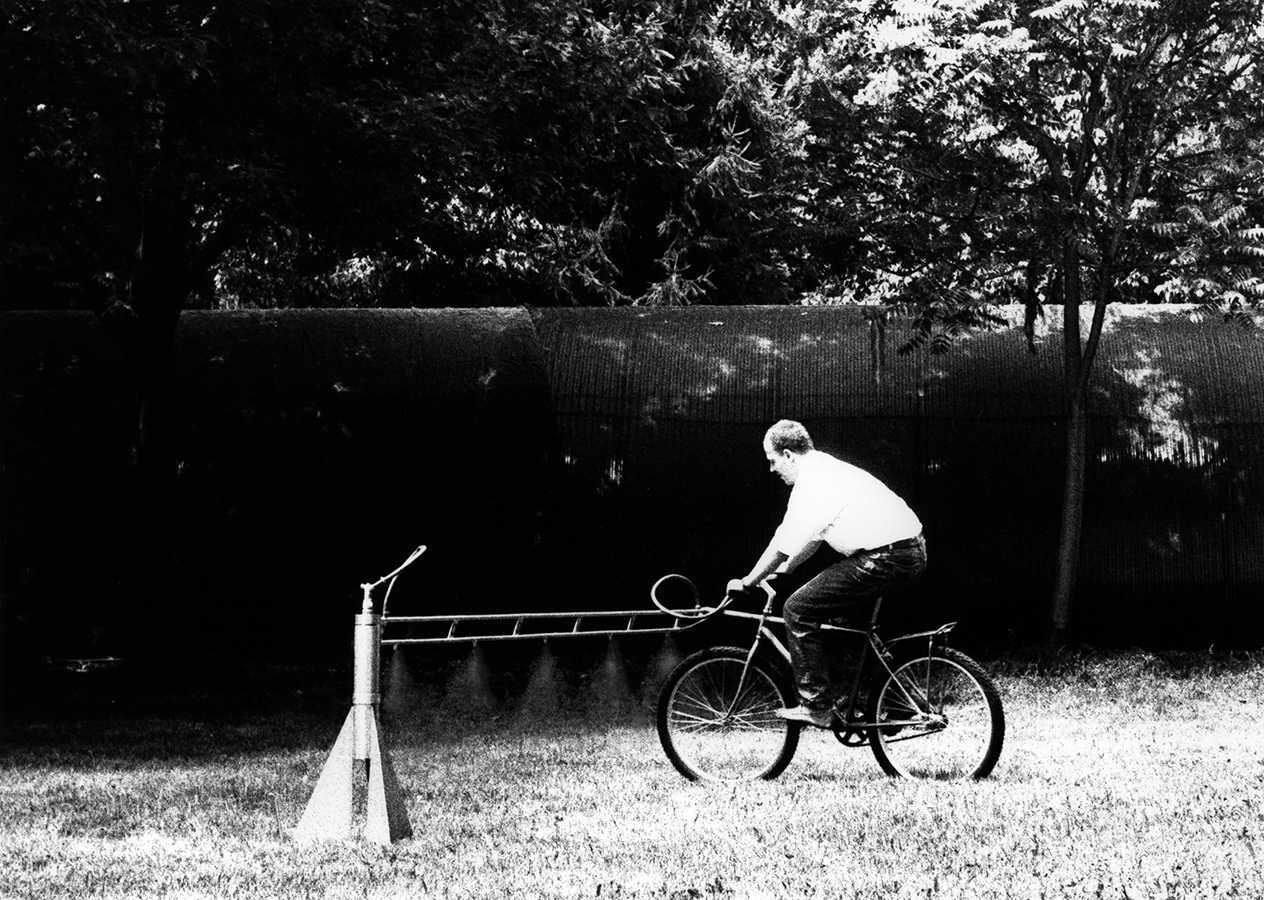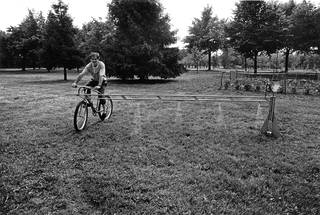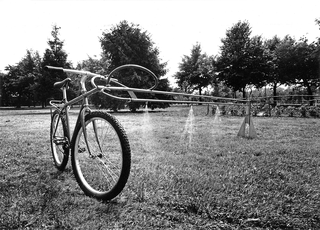From a return to agriculture to social criticism
Developing the concept further, Cavenago's work can be read as a utopian-dystopian proposal for a contemporary 'return to agriculture'. In a post-industrial Italy, marked by youth unemployment and rural depopulation, the installation imagines a small-scale economy, where simple technology (the bicycle and irrigation) democratises food production. This 'micro-intensive farming' anticipates central themes today, such as urban agriculture, DIY hydroponics and climate change resilient communities. Pedalling to irrigate is not just physical exertion, but a performative act involving the spectator: the work invites the public to interact, transforming art from a passive object into an active tool, in line with Cavenago's philosophy of creating "devices" that destabilise space and its meaning.
On a social level, the work comments on the alienation of modern work: pedalling in a circle recalls the alienating routine of assembly lines or precarious jobs, but reconnects it to a real output (water that nourishes the earth), suggesting that a real "million jobs" could emerge from decentralised and ecological models, rather than from grand state plans. It is a critique of Berlusconi's consumer capitalism, which privileges quick profit, proposing instead an ethic of 'doing with your hands', a return to Italy's peasant origins, where agriculture is not backwardness, but sustainability and community. In this, Cavenago aligns art with the ecological debate: irrigation symbolises the need to 'feed' society from below, counteracting the metaphorical desertification caused by failed policies.
Moreover, the work reflects on the evolution of contemporary sculpture: Cavenago, influenced by his architectural training, criticises traditional outdoor installations as "artificial" and disconnected from the landscape, proposing instead humble and functional works that recover a "deeper role" for art. Exhibited in a nursing home park, it emphasises themes of healing and regeneration, extending the agricultural metaphor to a sick society in need of "irrigation", a collective nourishment against political aridity.



Social
Contatti
umberto@cavenago.info